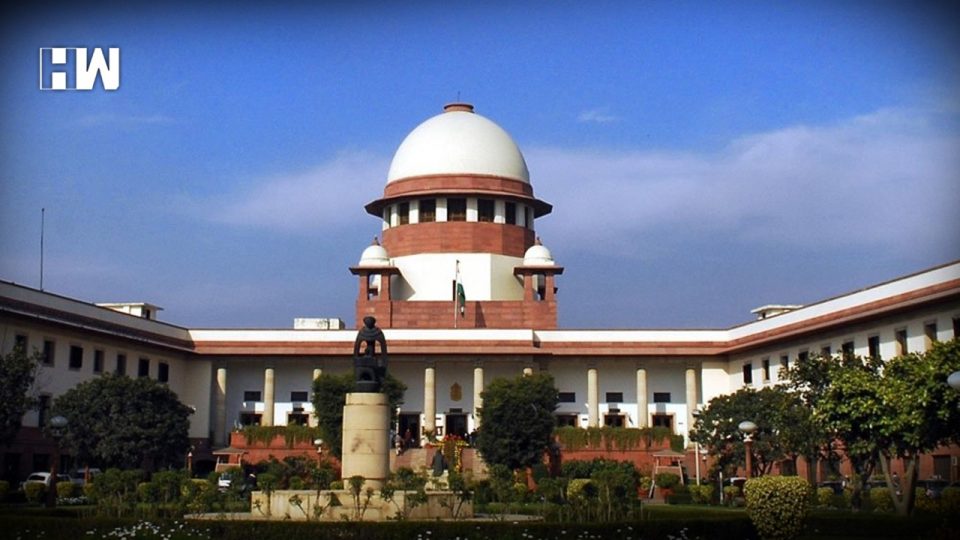On Tuesday afternoon the notice regarding the pronouncement of judgment was made public on the official website of the Supreme Court
New Delhi: On Wednesday the Supreme Court will pronounce its verdict on a plea challenging the Delhi High Court decision bringing the office of the chief justice of India under the Right to Information Act.
A five-judge constitution bench headed by CJI Ranjan Gogoi will pronounce the judgment at 2 pm. Other members of the bench are Justices N V Ramana, D Y Chandrachud, Deepak Gupta and Sanjiv Khanna.
On Tuesday afternoon the notice regarding the pronouncement of judgment was made public on the official website of the Supreme Court.
The chief justice will head the bench had wrapped up the hearing, saying nobody wants a “system of opaqueness”, but the judiciary cannot be destroyed in the name of transparency. “Nobody wants to remain in the state of darkness or keep anybody in the state of darkness,” said the bench. “The question draws the line in the name of transparency, anybody can’t destroy the institution.”
On January 10, 2010, in a landmark verdict, the Delhi High Court had held that the office of the Chief Justice of India comes within the ambit of the Right to Information (RTI) law, saying judicial independence was not a judge’s privilege, but a responsibility cast upon him.
As a personal setback to the then CJI, KG Balakrishnan, the 88-page judgment was then seen who has been opposed to disclosure of information relating to judges under the RTI Act.
The three-judge bench had delivered the high court verdict comprising Chief Justice AP Shah (since retired) and Justices Vikramjit Sen and S Muralidhar. The bench had dismissed a plea of the Supreme Court that contended bringing the CJI’s office within the RTI Act would “hamper” judicial independence.
Justice Sen retired as the judge of the apex court, while Justice Murlidhar is a sitting judge of the high court. The move to bring the office of the CJI under the transparency law was initiated by RTI activist SC Agrawal. His lawyer Prashant Bhushan had submitted in the top court that though the SC should not have been judging its own cause, it is hearing the appeals due to the “doctrine of necessity”.
“Do judges inhabit different universe?” asking a question the lawyer had described the reluctance of the judiciary in parting information under the RTI Act as “unfortunate” and “disturbing”. He had submitted that the Supreme court has always stood for transparency in the functioning of the other organs of State, but it develops cold feet when its own issues require attention.
Mentioning to the RTI provisions, Bhushan had said they also deal with exemptions and information that cannot be given to applicants, but the public interest should always “outweigh” personal interests if the person concerned is holding or about to hold a government office.
Bhushan had quoted “This is not independence from accountability. Independence of the judiciary means it has to be independent of the executive and not independent from the common people. People are entitled to know as to what public authorities are doing,”.
The deliberations of the collegium in appointing and overlooking judges or lawyers should be made public and information can be parted with under RTI on case-to-case basis keeping in mind the larger public interest, the lawyer had said.
The bench had said that people, of late, were preferring out and do not want to become judges because of the fear of negative publicity. “On discussion, the reason appears to be the possibility of the negative observations, whether rightly or wrongly, being brought into the public domain,” it had observed.
In this case, after losing judgeship and reputation, the professional and family life of the person is adversely affected, it had said. The Supreme court had said it had brought several changes in the functioning of the collegium system and also said now members have started interacting with prospective candidates.
As an independent media platform, we do not take advertisements from governments and corporate houses. It is you, our readers, who have supported us on our journey to do honest and unbiased journalism. Please contribute, so that we can continue to do the same in future.

